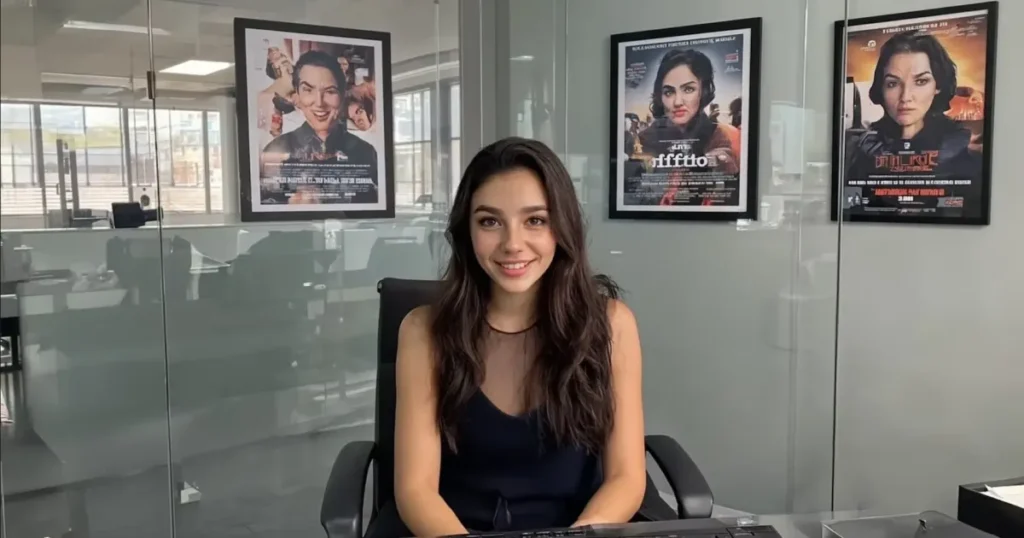The release of AI-generated actress Tilly Norwood is setting Hollywood on ablaze. (That’s a proverbial fire, not a real one. California sees enough of those). What began as a flashy tech debut at the Zurich Film Festival has escalated into an industry-wide uproar. From veteran actors to unions, the reactions are swift: this is not the future they want.
What’s Happening & Why This Matters
An AI “Actress” Enters: Stage Right

Tilly Norwood, a digital creation by Eline Van Der Velden and her AI studio Particle6, was introduced as a performer capable of doing everything from action stunts to emotional close-ups—without fatigue, contracts, or paychecks. Marketed as a “new tool for storytelling,” Norwood is the centrepiece of a short film, AI Commissioner, entirely generated by AI. Van Der Velden described her creation as a “paintbrush,” likening it to animation or CGI.
But the framing has done little to cool tempers. On Instagram, Tilly “acted” like any ambitious young starlet — posting “screen tests”. She even boasted in one viral caption that she performed more stunts and roles in 20 seconds than a human actress could in weeks. To many, it felt like a mockery of human labor in film.
The backlash from Hollywood
The reaction has been ferocious. Sag-Aftra, the powerful actors’ union, declared that Tilly was not an actor but a “computer program trained on the stolen performances of countless professionals — without consent or compensation.” They warned that such creations “jeopardise livelihoods and devalue human artistry.”

Actors have been similarly vocal. Emily Blunt, speaking on a Variety podcast, didn’t mince words: “Good Lord, we’re screwed. That is really, really scary. Please stop taking away our human connection.”
Melissa Barrera, Mara Wilson, and Ralph Ineson joined in condemning the project. Wilson slammed the creators for pretending AI work was original: “Hundreds of real workers made this. You took their work and pretended it was yours.” Ineson, blunt as ever, posted two simple words: “F**k off.”
Even younger actors like Sophie Turner and Cameron Cowperthwaite expressed disgust. Turner dismissed the idea outright, while Cowperthwaite called it “disturbing” and said he hoped it failed “in every way humanly and… non-humanly possible.”
The Industry Context: AI anxieties
The anger around Tilly is not just about one character. It represents years of anxiety about how AI has been trained — by scraping performances, scripts, and imagery without licenses or royalties. The fears are central to the 2023 Hollywood writers’ and actors’ strikes, where unions demanded guardrails around AI use in film and streaming. Agreements provided some protections, but they couldn’t stop independent studios or startups from using open-source tools to create synthetic performers.
Meanwhile, lawsuits are stacking up. Disney, Universal, and Warner Bros. filed cases against AI platforms such as Midjourney, accusing them of illegally recreating characters like Wall-E and Bart Simpson. Even OpenAI faced scrutiny over its Sora video generator, which now allows rights holders to opt-out of training and restricts recreations of living artists and public figures.
The Tilly Norwood episode is Hollywood’s nightmare scenario come to life: a machine-crafted “actor” competing for jobs, visibility, and cultural space once reserved for humans.

TF Summary: What’s Next
The arrival of Tilly Norwood rocked the debate about AI in entertainment from theory to reality. While her creator insists she’s “art, not a replacement,” the industry views her as an existential threat. The following weeks and months may spell whether studios embrace AI characters or bow to union and public pressure to keep film and television fundamentally human.
MY FORECAST: For now, the backlash justifies a central truth: audiences crave authenticity. The question is whether authenticity can coexist with algorithms on the big (or little) screen.
— Text-to-Speech (TTS) provided by gspeech


